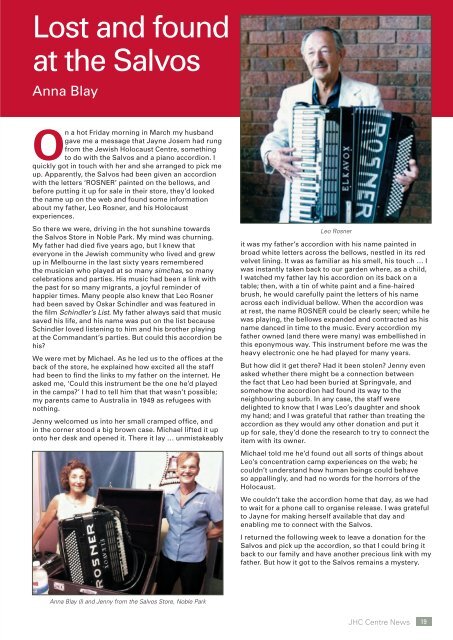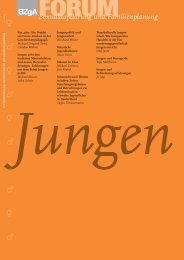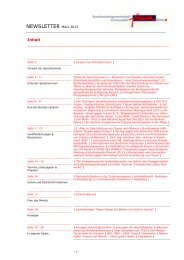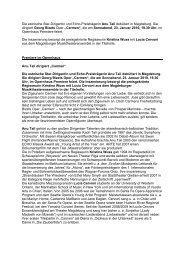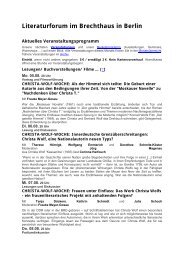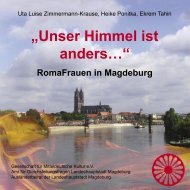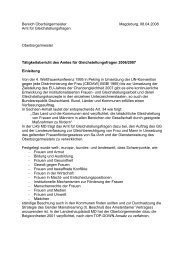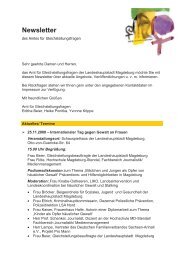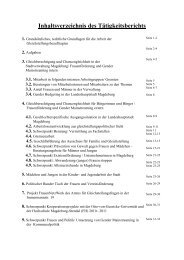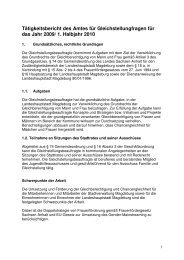Raoul Wallenberg becomes Australia's first honorary citizen
Raoul Wallenberg becomes Australia's first honorary citizen
Raoul Wallenberg becomes Australia's first honorary citizen
You also want an ePaper? Increase the reach of your titles
YUMPU automatically turns print PDFs into web optimized ePapers that Google loves.
Lost and found<br />
at the Salvos<br />
Anna Blay<br />
On a hot Friday morning in March my husband<br />
gave me a message that Jayne Josem had rung<br />
from the Jewish Holocaust Centre, something<br />
to do with the Salvos and a piano accordion. I<br />
quickly got in touch with her and she arranged to pick me<br />
up. Apparently, the Salvos had been given an accordion<br />
with the letters ‘ROSNER’ painted on the bellows, and<br />
before putting it up for sale in their store, they’d looked<br />
the name up on the web and found some information<br />
about my father, Leo Rosner, and his Holocaust<br />
experiences.<br />
So there we were, driving in the hot sunshine towards<br />
the Salvos Store in Noble Park. My mind was churning.<br />
My father had died five years ago, but I knew that<br />
everyone in the Jewish community who lived and grew<br />
up in Melbourne in the last sixty years remembered<br />
the musician who played at so many simchas, so many<br />
celebrations and parties. His music had been a link with<br />
the past for so many migrants, a joyful reminder of<br />
happier times. Many people also knew that Leo Rosner<br />
had been saved by Oskar Schindler and was featured in<br />
the film Schindler’s List. My father always said that music<br />
saved his life, and his name was put on the list because<br />
Schindler loved listening to him and his brother playing<br />
at the Commandant’s parties. But could this accordion be<br />
his?<br />
We were met by Michael. As he led us to the offices at the<br />
back of the store, he explained how excited all the staff<br />
had been to find the links to my father on the internet. He<br />
asked me, ‘Could this instrument be the one he’d played<br />
in the camps?’ I had to tell him that that wasn’t possible;<br />
my parents came to Australia in 1949 as refugees with<br />
nothing.<br />
Jenny welcomed us into her small cramped office, and<br />
in the corner stood a big brown case. Michael lifted it up<br />
onto her desk and opened it. There it lay … unmistakeably<br />
Leo Rosner<br />
it was my father’s accordion with his name painted in<br />
broad white letters across the bellows, nestled in its red<br />
velvet lining. It was as familiar as his smell, his touch … I<br />
was instantly taken back to our garden where, as a child,<br />
I watched my father lay his accordion on its back on a<br />
table; then, with a tin of white paint and a fine-haired<br />
brush, he would carefully paint the letters of his name<br />
across each individual bellow. When the accordion was<br />
at rest, the name ROSNER could be clearly seen; while he<br />
was playing, the bellows expanded and contracted as his<br />
name danced in time to the music. Every accordion my<br />
father owned (and there were many) was embellished in<br />
this eponymous way. This instrument before me was the<br />
heavy electronic one he had played for many years.<br />
But how did it get there? Had it been stolen? Jenny even<br />
asked whether there might be a connection between<br />
the fact that Leo had been buried at Springvale, and<br />
somehow the accordion had found its way to the<br />
neighbouring suburb. In any case, the staff were<br />
delighted to know that I was Leo’s daughter and shook<br />
my hand; and I was grateful that rather than treating the<br />
accordion as they would any other donation and put it<br />
up for sale, they’d done the research to try to connect the<br />
item with its owner.<br />
Michael told me he’d found out all sorts of things about<br />
Leo’s concentration camp experiences on the web; he<br />
couldn’t understand how human beings could behave<br />
so appallingly, and had no words for the horrors of the<br />
Holocaust.<br />
We couldn’t take the accordion home that day, as we had<br />
to wait for a phone call to organise release. I was grateful<br />
to Jayne for making herself available that day and<br />
enabling me to connect with the Salvos.<br />
I returned the following week to leave a donation for the<br />
Salvos and pick up the accordion, so that I could bring it<br />
back to our family and have another precious link with my<br />
father. But how it got to the Salvos remains a mystery.<br />
Anna Blay (l) and Jenny from the Salvos Store, Noble Park<br />
JHC Centre News 19


